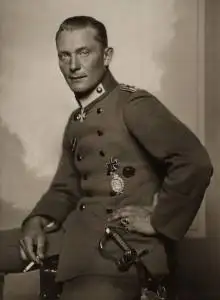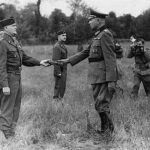What did people think of Hermann Goering as a military leader?
What did people think of Hermann Goering as a military leader? Hermann Göring was a complex and controversial figure, and assessments of his abilities as a military leader vary widely depending on the perspective of historians, contemporaries, and analysts of Nazi Germany’s history.
Early Reputation
World War I Hero: Göring was initially celebrated for his service as a fighter ace in World War I, earning the prestigious Pour le Mérite medal. This early military success helped establish his reputation as a skilled pilot and military man.
Charismatic Leader: Early in the Nazi regime, Göring was seen as charismatic and capable, often leveraging his personality to consolidate power within the Nazi hierarchy.
Decline in Military Effectiveness
Luftwaffe Leadership: As head of the Luftwaffe, Göring played a significant role in its initial successes, particularly in the Blitzkrieg campaigns of 1939–1941. However, his leadership came under heavy criticism as the war progressed:
Battle of Britain (1940): Göring’s Luftwaffe failed to achieve air superiority over Britain, which was a critical factor in the failure of Operation Sea Lion (the planned invasion of Britain). His strategies were often seen as overly ambitious and poorly executed.
Micromanagement and Inflexibility: Göring was known for micromanaging operations, ignoring expert advice, and failing to adapt to changing battlefield conditions.
Responsibility for Key Failures:
Eastern Front: Göring promised to supply German troops trapped in Stalingrad by airlift, a claim that proved impossible, leading to the catastrophic surrender of the German 6th Army in 1943.
Decline of the Luftwaffe: Under his leadership, the Luftwaffe struggled with overextension, poor resource allocation, and the inability to counter the Allied bombing campaigns effectively.
Personal and Strategic Flaws
Arrogance and Overconfidence: Göring often made grandiose promises that he could not fulfill, leading to diminished trust among both his peers and subordinates.
Corruption and Self-Indulgence: Göring’s lavish lifestyle, obsession with collecting art, and increasing detachment from military realities further undermined his effectiveness as a leader.
Drug Addiction: His addiction to morphine significantly impacted his judgment and ability to lead effectively in the latter stages of the war.
Contemporary Opinions
Hitler’s Inner Circle: Göring’s standing with Hitler declined over time. Initially a trusted lieutenant, he eventually fell out of favor due to repeated failures and his perceived lack of resolve in the face of Germany’s collapse.
Allied Perspective: Göring was often mocked by the Allies for his bombastic statements and inability to deliver on his military promises. British Prime Minister Winston Churchill, for instance, saw him as emblematic of Nazi hubris.
Historical Assessments
Mixed Legacy: Some historians acknowledge his early contributions to the Luftwaffe’s initial successes, but most agree that his leadership failures significantly contributed to Germany’s military defeats.
Symbol of Decline: Göring is often seen as a symbol of the Nazi regime’s corruption, inefficiency, and eventual downfall.
In summary, while Göring had moments of brilliance early in his career, his tenure as a military leader during World War II was marked by significant failures and poor judgment, leading to widespread criticism from both contemporaries and historians.


